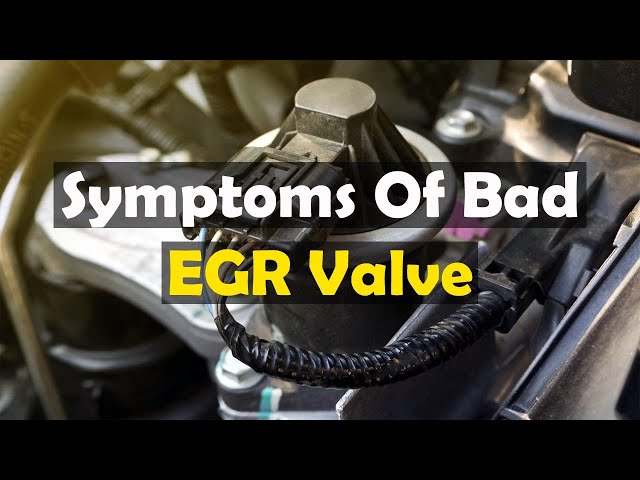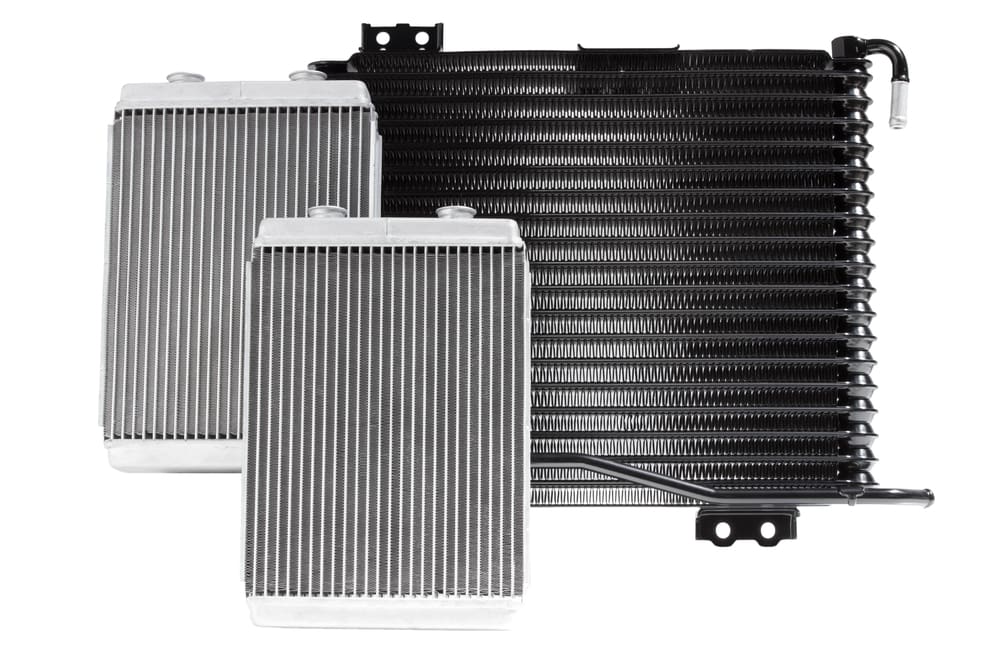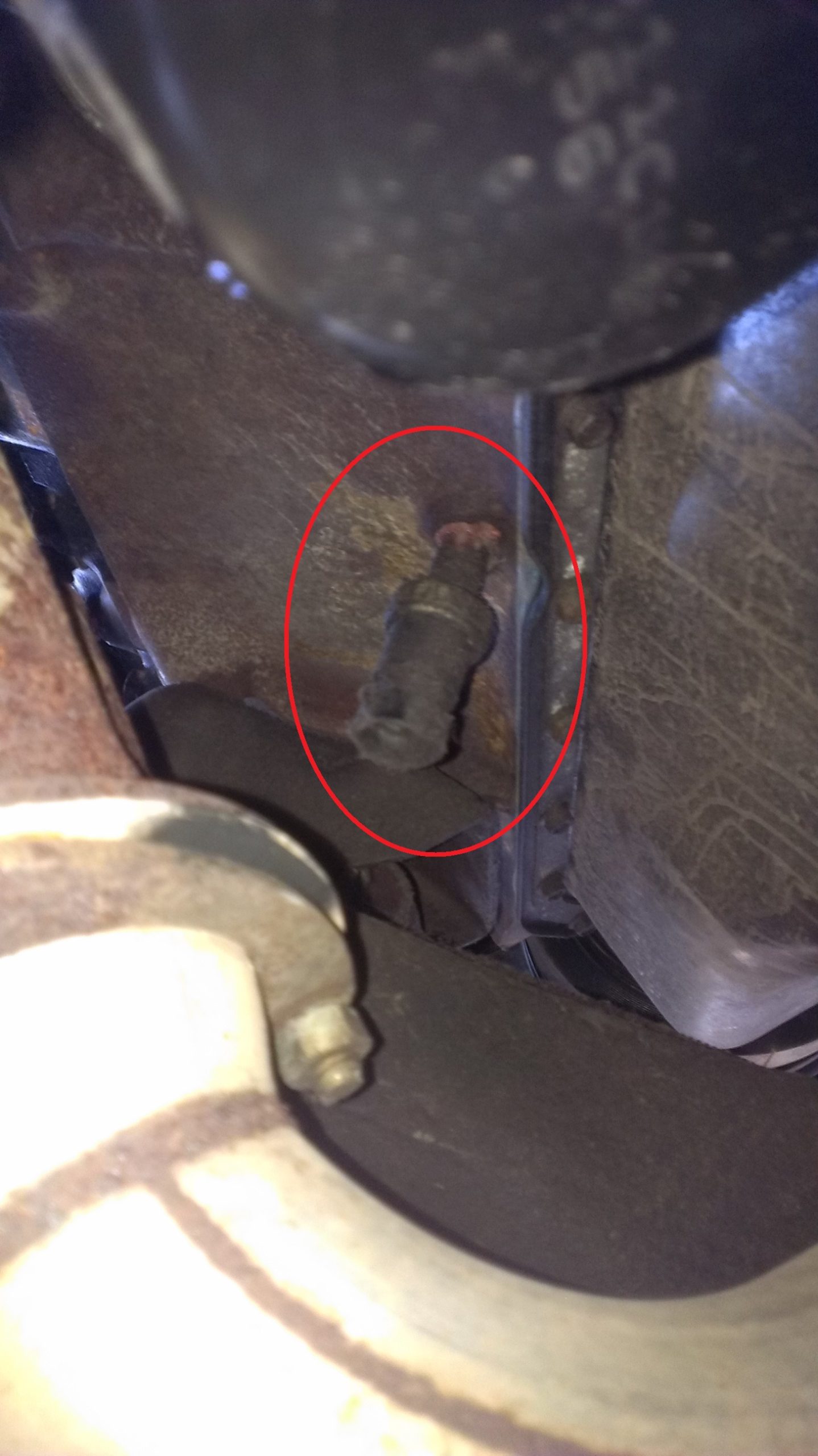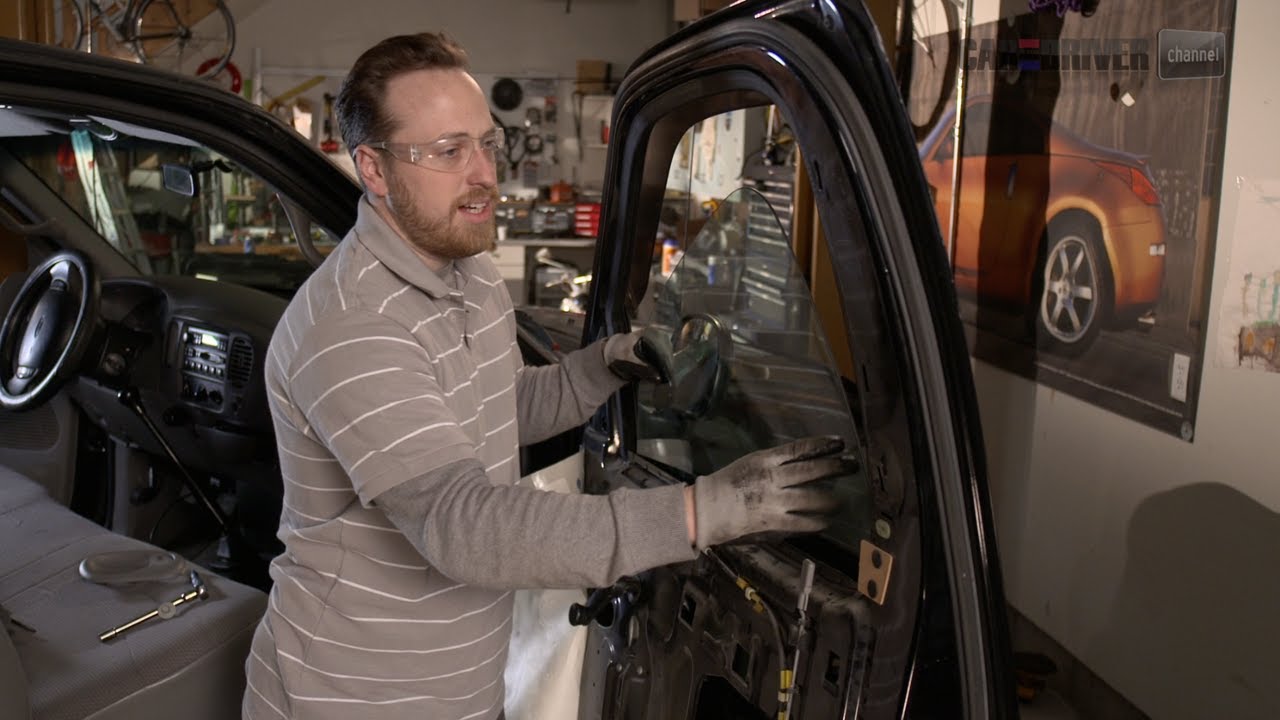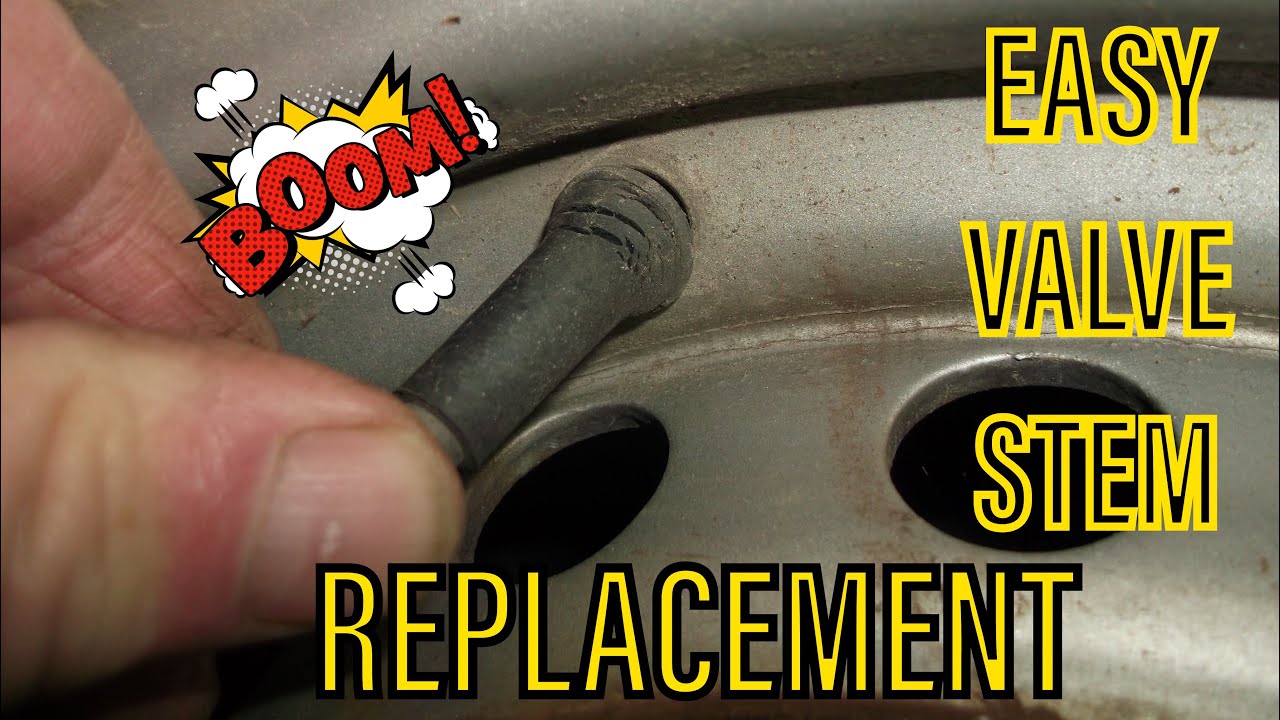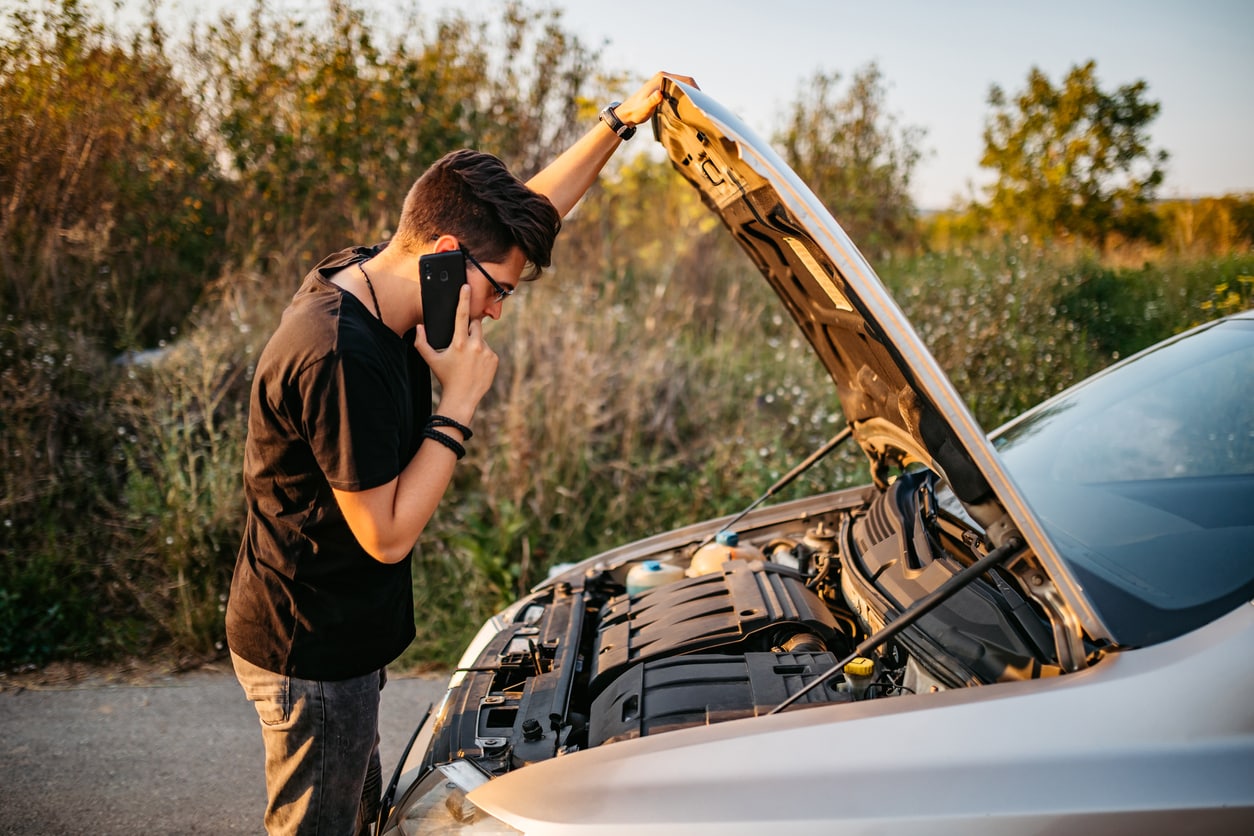Can a Bad Egr Valve Cause Stalling
Yes, a bad EGR (Exhaust Gas Recirculation) valve can cause an engine to stall. It may disrupt the air-fuel mixture, leading to poor idling and stalling.
A malfunctioning EGR valve can be a source of several engine issues, including the unsettling experience of stalling. This crucial component is designed to reduce emissions by recirculating a portion of the engine’s exhaust gas back to the engine cylinders.
When it isn’t operating correctly, it can negatively impact the performance of the engine in multiple ways. Stalling typically occurs because the EGR valve sticks open, introducing too much exhaust into the intake system. This excess can dilute the air-fuel mixture to a point where combustion is not efficient, interrupting the smooth operation of the engine and potentially causing it to shut off entirely. Recognizing the importance of a fully functional EGR valve is vital for maintaining optimal vehicle performance and adherence to emission standards. Car owners should stay attentive to their engine’s behavior and seek prompt diagnosis and repair should they suspect EGR valve malfunctions.
Signs Of A Faulty Egr Valve
The Exhaust Gas Recirculation (EGR) valve plays a crucial role in reducing emissions and improving your vehicle’s efficiency. A faulty EGR valve can have significant impacts on engine performance, potentially leading to stalling and rough idling. Recognizing these signs promptly can save you from more serious engine troubles down the road.
Stalling And Rough Idling
Stalling might occur if the EGR valve gets stuck open or closed. This can cut off or disrupt the precise air-to-fuel ratio needed for smooth engine operation. You might notice your car:
- Hesitates or judders when starting,
- Experiences a sudden loss of power,
- Or stalls completely while at a stop or in idle.
Rough idling can also suggest an EGR issue. The engine may:
- Run unevenly when stationary,
- Show erratic RPM counts,
- Or produce unusual sounds or vibrations.
Decreased Engine Performance
A bad EGR valve can lead to noticeable declines in engine performance. This might manifest as:
- Reduced acceleration and power,
- Lowered fuel efficiency,
- And increased emissions.
This underperformance stems from the engine struggling to maintain the optimal balance of air and recirculated exhaust gases.
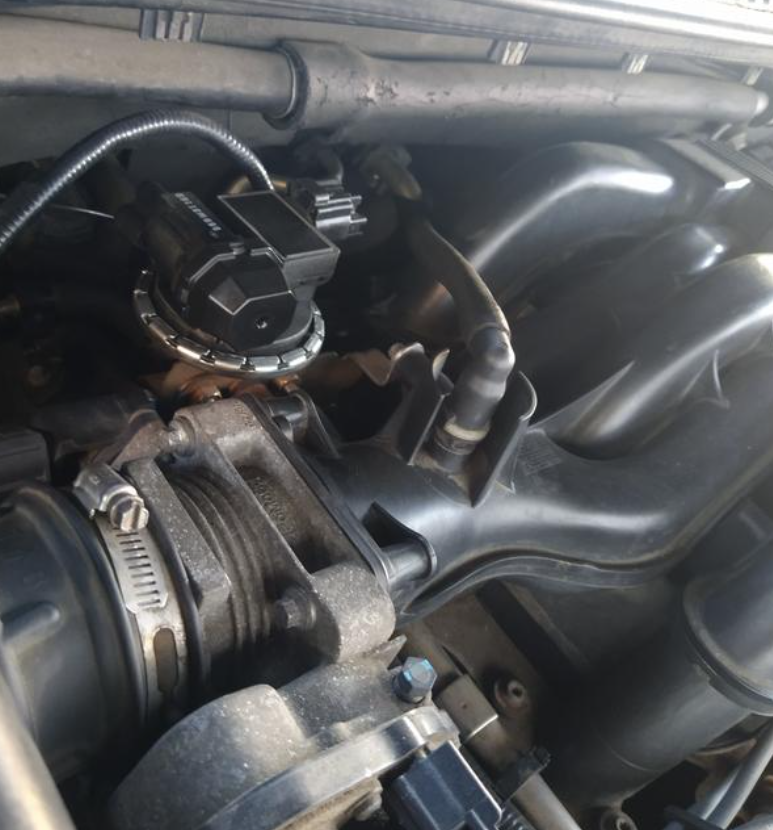
Credit: www.autozone.com
Egr Valve Functions
The EGR (Exhaust Gas Recirculation) valve plays a crucial role in your car’s engine. It helps reduce harmful emissions and improves overall engine performance. But what happens when this component fails? It could lead to stalling, among other issues. Let’s dive deeper into how the EGR valve works and its importance for your vehicle.
Emissions Reduction
The EGR valve is an eco-friendly addition to modern vehicles. Its primary purpose is to lower the levels of nitrogen oxide (NOx) released into the atmosphere. It does this by recirculating a portion of the exhaust gases back into the engine’s combustion chamber. This process reduces the peak combustion temperature, which, in turn, deminishes the formation of NOx.
Recirculation Process
Understanding the recirculation process is key to knowing how an EGR valve affects your car’s engine. Here’s a simple breakdown:
- Exhaust gases exit the engine and are directed towards the EGR valve.
- The EGR valve opens at specific times, allowing some of these gases to flow back into the combustion chamber.
- This mixture of fresh air and recirculated exhaust gases lowers combustion temperatures and reduces NOx emissions.
However, if the EGR valve malfunctions, it may either stick open or closed. If stuck open, your engine may run poorly or stall due to an incorrect air-to-fuel ratio. If stuck closed, it could lead to increased emissions and potential engine knocking.
Stalling: A Symptom Of Egr Valve Problems
Imagine driving along when suddenly your car stalls. This frustrating situation may link to a small yet crucial car component: the EGR valve. The Exhaust Gas Recirculation (EGR) valve plays a key role in reducing vehicle emissions. When it malfunctions, it might lead to your car stalling. Let’s explore how EGR valve issues can cause these startling stalls.
How An Egr Valve Malfunction Leads To Stalling
An EGR valve helps control your car’s exhaust. It cools and recirculates a portion of the exhaust gas back into the engine. When it fails, the engine’s air-to-fuel ratio messes up. This mishap can cause the engine to stall. Stalling occurs since the engine either:
- Gets too much exhaust gas.
- Lacks enough oxygen for combustion.
Intermittent Egr Valve Operation
EGR valves can sometimes work sporadically, making stalls infrequent but puzzling. Dirt or carbon buildup often causes such behavior. Key signs of this include:
| Sign | Description |
|---|---|
| Random Stalling | Car stops at irregular times. |
| Performance Issues | Rough running, especially at low speeds. |
| Error Codes | Check engine light activates with EGR-related codes. |
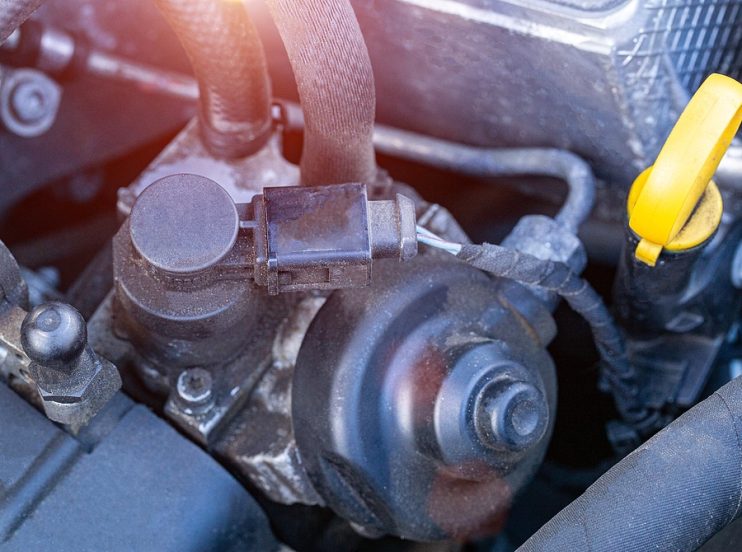
Credit: www.breakerlink.com
Diagnosing A Faulty Egr Valve
Stalling engines can point to a bad EGR valve. This valve, crucial for emissions control, can cause major car troubles when faulty. Keeping engines running smoothly requires a properly working EGR valve. Spotting issues early prevents further damage and costly repairs.
Visual Inspection
Start with a visual check of the EGR valve. Look for signs of damage or carbon build-up. This build-up can jam the EGR valve, leading to performance issues. Check the valve’s position. It should not be stuck open or closed. Inspecting vacuum hoses for cracks or disconnections is crucial. These can disrupt the valve’s function. Remember, a clean EGR valve is key for it to operate well.
Diagnostic Trouble Codes
Next, delve into the diagnostic trouble codes (DTCs). A scan tool reads these codes from the car’s computer system. The tool reveals specific EGR-related codes. These codes indicate potential EGR problems. Common codes related to EGR issues include P0401, P0402, and P0403. Technicians rely on these codes to pinpoint the issue.
A faulty EGR valve can lead to rough idling or even complete stalling. Recognize symptoms early to avoid engine damage and keep the ride smooth. Follow these steps to accurately diagnose an EGR valve problem.
Solving Egr Valve Issues
When an EGR (Exhaust Gas Recirculation) valve malfunctions, it can lead to engine stalling. Knowing how to address EGR valve problems can save both time and money while protecting your vehicle from damage. This section will guide you through cleaning and replacing an EGR valve, and help you decide whether to tackle the job yourself or seek professional help.
Cleaning Versus Replacement
- Identify: First, determine if the EGR valve is dirty or broken.
- Cleaning: If the valve is dirty, remove it and clean the carbon buildup carefully.
- Inspection: Check for signs of wear or damage after cleaning.
- Replacement: If cleaning doesn’t solve the issue, or the valve is damaged, it’s time for a new one.
Professional Repair Vs. Diy
| Professional Repair | DIY |
|---|---|
|
|
Deciding between a professional repair and doing it yourself? Weigh the costs against your confidence in handling automotive repairs. A clear understanding of the issue and the proper tools are key to a successful DIY. When in doubt, professional assistance offers expertise and peace of mind.

Credit: www.mercurynews.com
Preventive Maintenance For Egr Valves
Your vehicle’s health relies on a functioning EGR (Exhaust Gas Recirculation) valve. Maintaining this critical component can prevent problems, like stalling. Regular maintenance ensures it works correctly, keeping your car’s performance smooth and efficient. Let’s learn how to extend its life and avoid costly repairs.
Regular Check-ups
Never overlook the importance of EGR valve check-ups. An expert can spot issues early. They’ll check for clogs, damage, or wear. This way, you keep the valve in top shape. Follow the manufacturer’s guidelines for service intervals. Still, a checkup every year is wise.
Symptoms That Shouldn’t Be Ignored
EGR valve troubles come with clear signs. Pay attention and act fast. Here are common symptoms:
- Rough idling: The engine runs unevenly at a stop.
- Poor performance: Acceleration feels weak or jittery.
- Increased fuel consumption: You’re at the pump more often.
- Check engine light: It’s the dashboard’s cry for help.
Don’t wait if you notice these. A mechanic can diagnose and fix any EGR valve issue. Quick action can save you from stalling in traffic, which is risky and inconvenient.
Frequently Asked Questions For Can A Bad Egr Valve Cause Stalling
Can A Faulty Egr Valve Lead To Engine Stalling?
A malfunctioning EGR (Exhaust Gas Recirculation) valve can indeed cause an engine to stall. The valve may stick open or closed, disrupting the air-fuel mixture balance and causing rough idling or stalling, especially at low speeds.
How Does An Egr Valve Affect Vehicle Performance?
An EGR valve helps regulate nitrogen oxide emissions and when it fails, it can result in reduced engine performance. Symptoms include decreased fuel efficiency, increased emissions, and potential engine pinging or knocking sounds.
What Are Common Signs Of A Bad Egr Valve?
Common indications of a bad EGR valve are rough idling, a noticeable drop in fuel efficiency, the engine light turning on, and sometimes an unusual smell from the exhaust.
Is It Safe To Drive With A Malfunctioning Egr Valve?
Driving with a defective EGR valve can increase emissions and lead to engine performance issues. While not immediately dangerous, it should be addressed promptly to prevent further damage to the engine and ensure road safety.
Conclusion
To sum up, a faulty EGR valve can indeed lead to stalling issues in vehicles. Timely maintenance and regular checks are key to preventing this. Remember, preserving your engine’s health is crucial for a reliable driving experience. Keep an eye out for symptoms, and consult a professional to address any EGR-related problems promptly.
Drive safe!

